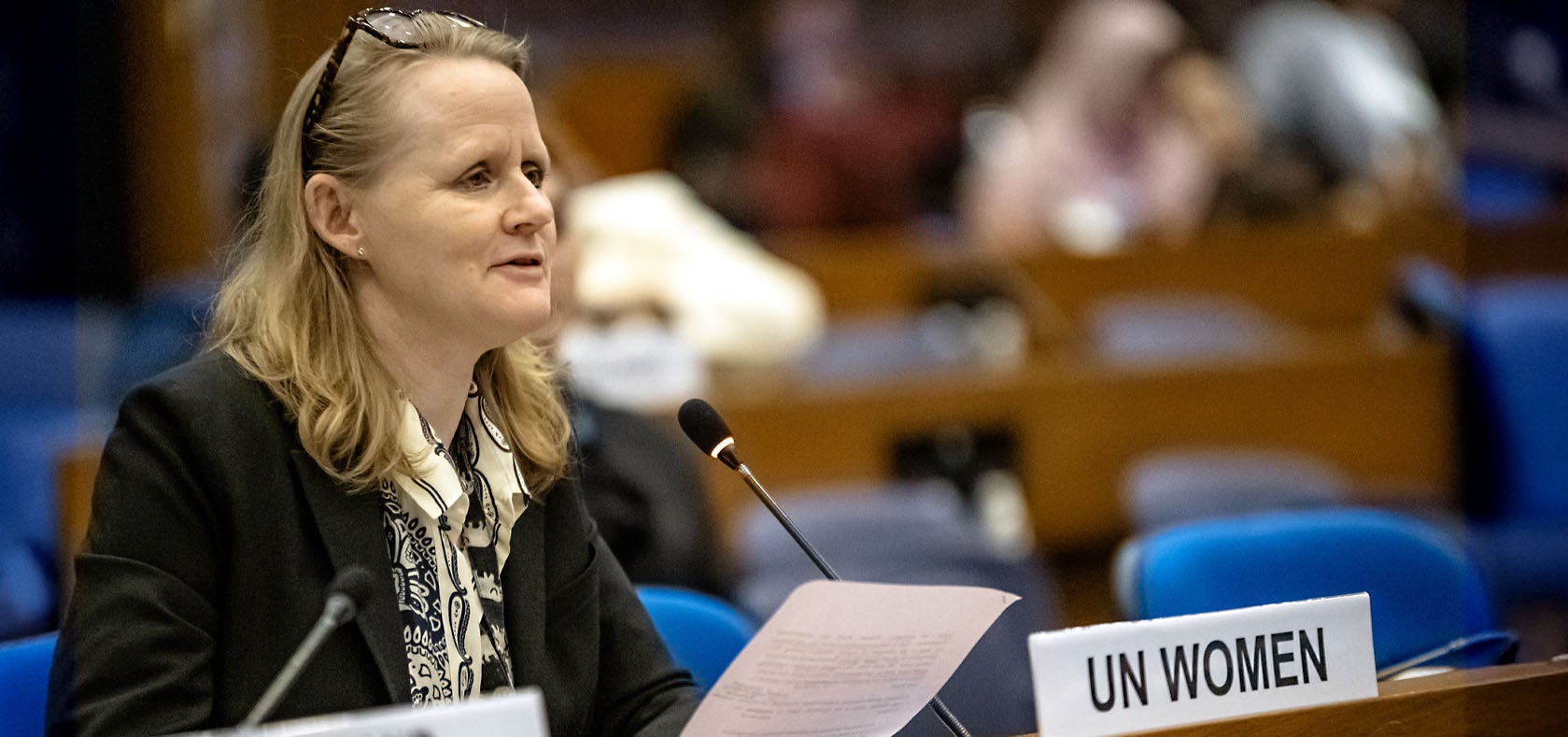Review of progress and challenges with regard to implementing the Global Compact for Safe, Orderly and Regular Migration in Asia and the Pacific
Speech by Maria Holtsberg, Deputy Regional Director, UN Women Regional Office for Asia and the Pacific on the review of progress and challenges with regard to implementing the Global Compact for Safe, Orderly and Regular Migration in Asia and the Pacific. On 4 February 2025 at UNCC, Bangkok, Thailand.
Date:

[Solutation]
It is an honour for UN Women to contribute to this Second Regional Review of the Global Compact for Migration.
Migration, as an important feature of our globalized and rapidly changing world, can be a transformative force and cornerstone of sustainable development, particularly within a dynamic and diverse region such Asia and the Pacific.
Women represent nearly half of all migrants in this region. Many work in highly gendered, low-paid, informal, and undervalued sectors such as domestic and care work. Women migrant workers contributions are essential to the economic and social development of countries of origin, transit, and destination. However, many face gender-based discrimination – such as bans on emigration to certain jobs, age limits or the need to get permission to migrate, therefore limiting their opportunities to safe and regular migration. Limited agency and decision-making power can push them into irregular migration, trafficking, gender-based violence, and exploitation. Evidence shows that gender-responsive policies and programmes are critical to respond to these issues.
To enhance gender-responsive implementation of the Global Compact for Safe, Orderly, and Regular Migration, UN Women urges Member States in the Asia-Pacific region to advance the following:
- Eliminating gender-based discriminatory restrictions on migration;
- Ensuring adequate gender-specific essential services and support for all migrants at all stages of migration;
- Increasing the collection and use of gender data on migration to increase evidence-based and gender-responsive policy and program development; and
- Involving migrant women and girls and their representatives in policy-making processes that affect them.
Excellencies,
A truly gender-responsive migration governance is not only the right thing to do but fundamental to build inclusive and sustainable economies in times of global demographic and economic transformations and climate change.
UN Women is committed to continuing its efforts to support Member States and other stakeholders in further implementation of the Global Compact for Migration. Together, we can realize the world where all can have the choice to migrate safely and with dignity.
Thank you.
[Check against delivery]